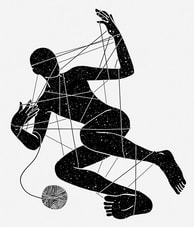 Ahmaud Arbery Ahmaud Arbery IN HIS COLUMN today regarding the Ahmaud Arbery case, George F. Will claims that hate crimes are actually thought crimes, and that expressing horror at them is naught but virtue signaling. (No, I won’t link to his column. It is odious, and I prefer not to help it organic search-wise any more than necessary.) I find it hard to imagine that a mind as acute as Will’s truly fails to grasp the concept of hate crime. Will, of all people, surely knows that hate crime is not the same as thought crime. Hate crimes are terrorist acts that target specific populations. No one in the U.S. goes to jail for hateful thinking. But if you assault The Other for being The Other, you terrorize other Others, and you damn well should go to jail for it—over and above going to jail for the assault itself. Granted, hate crime isn’t the best moniker. Unfortunate nomenclature plagues many a worthy cause. Black Lives Matter, not the best moniker. Defund the Police, not the best moniker. But it’s incumbent upon decent people, and especially upon writers of Will’s stature, to inform themselves — and their readers! — of what a movement truly stands for. To argue against what the uniformed think a term means as opposed to what it actually means is brazen intellectual dishonesty. It is the antithesis of what is known in debate circles as the Principle of Charity. Do not let George Will and other fear-mongers worry you that prosecuting a hate crime is a walk in the park. To prove he killed them because they were black as opposed to he killed them and they happened to be black is notoriously difficult. When a hate crime is established to a jury’s satisfaction, it is not to be taken lightly.* If you so much as glanced at the evidence in the Ahmaud Arbery case, you are most likely aware (even if unwilling to concede) that because he was black came through loud and clear. So, no, Mr. Will, Ahmaud Arbery’s killers were not convicted “because of their benighted beliefs.” They were convicted for committing the kind of racially motivated murder that, unchecked, has the effect of terrorizing all African Americans. And: Virtue signaling? Really? Virtue signaling, a term that the empathy-deprived seem to thrive on flinging of late, is a propagandist tool used to dismiss laudable actions by accusing the person taking them of a holier-than-thou attitude. It is the would-be sophisticate’s version of calling someone a goody two-shoes. It’s a nifty and flagrantly dishonest way to divert attention from the issue to the character and intent of the person raising it. I thought George Will was smarter than that. Or least not quite so dishonest. Or at least not quite so childish. * Not that it is to be taken as holy writ. I am well aware that juries can and do err. No need to @ me on that one.
0 Comments
“All friendships are ultimately inexplicable, although some of them are harder to figure than others.” —from A Dance at the Slaughterhouse by Lawrence Block  TWICE IN my life, a father figure showed up when I desperately needed one. Later, I would learn that each man was guilty of something egregious. With apologies to your curiosity, I shall not provide details. They would only get us off-track. Suffice it to say that the revelations knocked me for a loop. An inner voice told me to hate them, to have nothing further to do with them. Yet I couldn’t. The kindness, validation, and support each had shown me was still there. Certainly the good did not erase the bad; but, at least for me, neither did the bad wipe out the good. “Good person” versus “bad person” is a false dichotomy. Human character comprises many parts, each landing somewhere along its own acceptability continuum.* Some people land consistently near either extreme, but most — including you and me — land in different places on different continua. Consciously or not, we average the continua, and choose to write off some people and not others. Some of my friends hold views that I find odious. It’s a charge falling well short of “guilty of something egregious,” yet sometimes someone will ask how I can be friends with “a person like that.” We love not just because but also despite. * When you find yourself unable to make a decision, you are experiencing different aspects of yourself at war with one another. That’s an admitted oversimplification. For more information, I commend you to neuroscientist David Eagleman’s excellent book, Incognito: The Secret Lives of the Brain.
 This morning I heard from an aspiring biographer with no better sense than to ask for my thoughts. In the book he has under way, he attempts a psychological diagnosis of an historical figure. For a mental health professional, that’s already a risky proposition. For all but the most versed layperson, it can border on foolhardy. Worse, the American Psychological Association is considering retiring the diagnosis the writer came up with. They’re beginning to suspect it isn’t a thing. All of which I pointed out. The aspiring biographer was grateful for the tip. “Thanks,” he said, “I had no idea. I’ll do more research and fix that.” Har! Just kidding. What he really said was, “I’m not a professional. These are my opinions. I urge readers to draw their own conclusions.” Without realizing it, he had just defended perpetrating fake news. With bit of tweaking, his statement could be a slogan for Fox News or One America News Network. I agree that writers can and should opine. But facts are not matters of opinion. I believe that writers have a responsibility to check and double-check anything they present as fact. Moreover, writers must exercise caution when it comes to opining outside their respective areas of expertise. It’s wiser, more responsible, to quote, with attribution, experts from the field in question. And, it should go without saying, it is imperative to be sure that quoted experts really are experts. I hope he heeds the advice. No matter how well-intended, the world doesn’t need another Fox, OAN, Beck, Limbaugh, or Rogan. |
Welcome to Cunoblog... where I share thoughts about writing. I don’t consider myself a writing authority, but that doesn’t keep me from presuming to blog like one. Oh, and I reserve the right to digress when I feel like it. Archives
July 2024
|


 RSS Feed
RSS Feed